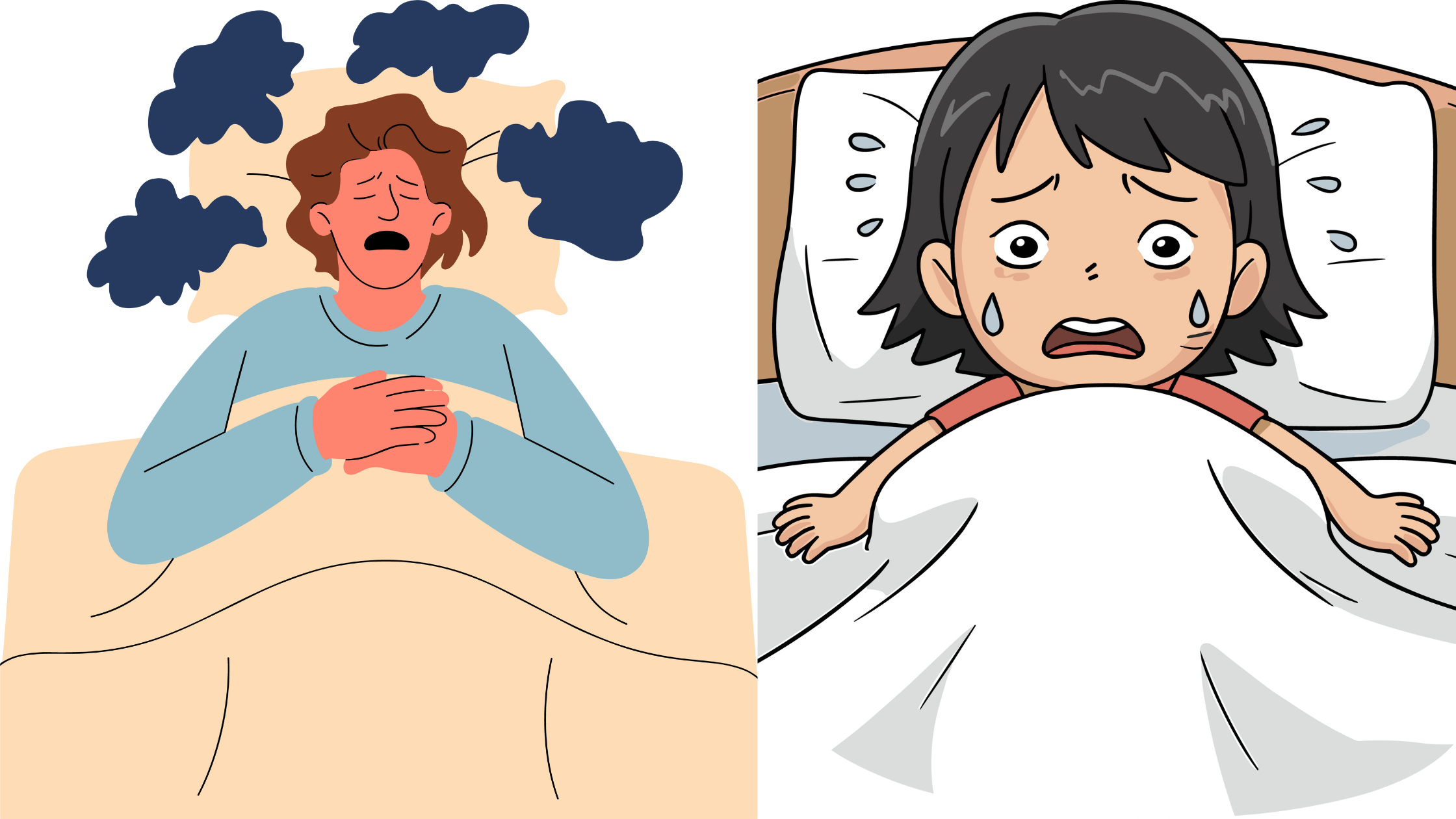
Nightmares and night terrors can be unsettling, whether they happen in childhood or adulthood. While occasional disturbing dreams are normal, frequent or intense episodes may be linked to underlying factors. Understanding what contributes to these sleep disturbances can help reduce their prevalence and improve overall rest.
Common Triggers in Children
-
Stress and Anxiety: Big life changes, school stress, or fears can fuel vivid dreams or night terrors.
-
Sleep Deprivation: Irregular bedtimes or insufficient sleep increase vulnerability.
-
Illness and Fever: High fevers sometimes trigger more intense dreams and night terrors.
-
Medications: Certain medicines, especially those affecting the nervous system, may heighten the risk.
-
Family History: Night terrors often run in families, suggesting a genetic component.
Common Triggers in Adults
-
Emotional Stress and Trauma: PTSD, unresolved trauma, and ongoing stress are major contributors.
-
Substance Use: Alcohol, recreational drugs, or withdrawal from these can worsen nightmares.
-
Sleep Disorders: Conditions like sleep apnea or restless legs syndrome can disrupt sleep and increase dream intensity.
-
Medications: Antidepressants, blood pressure drugs, and some sleep aids are linked with vivid dreaming.
-
Mental Health Conditions: Anxiety, depression, and bipolar disorder are associated with higher nightmare frequency.
Shared Factors Across Ages
-
Irregular Sleep Patterns: Shifts in bedtime routines, such as staying up late or jet lag, can destabilize sleep cycles.
-
Environmental Disruptions: Sleeping in unfamiliar places, excess noise, or unsafe environments may heighten disturbances.
-
Dietary Factors: Heavy meals, caffeine, or spicy foods close to bedtime may affect sleep depth and dream intensity.
Conclusion
While some causes—like genetics or necessary medication—are harder to control, lifestyle changes can reduce nightmare frequency. Establishing a consistent bedtime routine, managing stress through relaxation techniques, and seeking medical guidance when episodes are severe can all help.
If you or someone you know struggles with sleep, please click the orange button below to take a free online sleep test and talk with one of our sleep health professionals.

